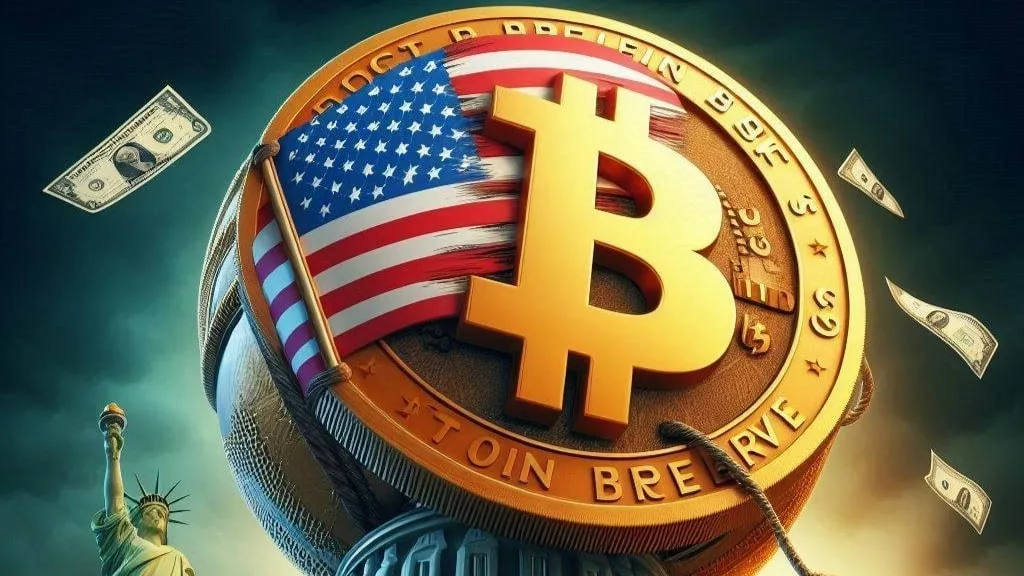
Senator Cynthia Lummis has reaffirmed her call for a groundbreaking economic initiative: the establishment of a national Bitcoin reserve. This ambitious proposal seeks to use Bitcoin as a strategic tool to stabilize the U.S. economy and tackle the nation’s escalating national debt. Senator Lummis, a long-time advocate for cryptocurrency, believes that by incorporating Bitcoin into the financial strategy of the U.S. Treasury, the country could shield itself from economic instability while addressing the $35 trillion national debt. However, despite its innovative potential, the plan faces significant political and public hurdles that could undermine its implementation.
In July 2024, Senator Lummis introduced the BITCOIN Act of 2024, a piece of legislation designed to integrate Bitcoin into U.S. financial policy. The core objective of the bill is for the U.S. Treasury to purchase one million Bitcoins over a five-year period. This would represent about 5% of Bitcoin’s total circulating supply, marking a historic move toward embracing cryptocurrency as a national reserve asset.
The proposal is grounded in the belief that Bitcoin could serve as a hedge against the volatility of the U.S. dollar and as a long-term store of value. Lummis sees Bitcoin’s deflationary nature as a counterbalance to the dollar’s inflationary tendencies, especially in the wake of rising national debt and economic uncertainty.
Lummis envisions that Bitcoin could provide a reliable safeguard for the U.S. economy, reducing reliance on traditional financial assets and offering an alternative that operates independently of government-controlled currencies. By acquiring Bitcoin as part of the Treasury’s portfolio, the U.S. could potentially use the digital asset as a buffer against inflation and as a mechanism to pay down national debt over time.
While the proposal has garnered some attention, it faces significant political resistance. The most formidable challenge lies in the current political landscape of Congress, where cryptocurrency remains a polarizing issue. Many members of the Republican Party, in particular, view Bitcoin with skepticism due to its volatile nature. For them, the notion of the U.S. government holding large quantities of Bitcoin seems too risky, given the digital asset’s unpredictable price fluctuations.
Critics within Congress argue that Bitcoin’s volatility makes it an unreliable store of value, particularly for a government that must safeguard taxpayer money. The political opposition has been particularly vocal about the potential dangers of Bitcoin’s speculative nature, which they argue could expose the U.S. to significant financial risk if the value of the cryptocurrency were to plummet unexpectedly.
Additionally, Bitcoin’s regulatory landscape remains unclear and fragmented, with numerous agencies, including the Securities and Exchange Commission (SEC) and the Commodity Futures Trading Commission (CFTC), debating its classification. Without clearer regulations, the U.S. Treasury could be reluctant to engage with Bitcoin as a financial asset, especially given the uncertainty surrounding its treatment in global financial markets.
Despite these hurdles, Senator Lummis continues to champion Bitcoin as a long-term solution to the United States’ growing national debt. According to her proposal, the U.S. government could use the strategic acquisition of Bitcoin to reduce the debt over the coming decades. She argues that Bitcoin’s limited supply and its expected appreciation in value could allow the U.S. Treasury to pay off a significant portion of the national debt. Lummis predicts that, if the reserve is established, the U.S. could potentially reduce half of its $35 trillion debt by 2045.
This vision rests on the assumption that Bitcoin will continue to grow in value over time. Bitcoin’s potential to outpace inflation is a central argument in Lummis’s proposal. She believes that as Bitcoin’s adoption and market capitalization increase, its value could provide an appreciating asset for the U.S. government, turning what is currently a speculative investment into a stable financial pillar.
However, critics argue that even one million Bitcoins—equivalent to approximately $75 billion at current prices—would hardly make a dent in the U.S.’s $35 trillion debt. In order to achieve meaningful debt reduction, the reserve would likely need to be much larger. This has led some to question whether Bitcoin can truly serve as a viable solution to the country’s fiscal challenges.
Beyond political opposition, the proposal also faces the challenge of changing public perception regarding Bitcoin. While Bitcoin has gained significant traction among institutional investors and tech enthusiasts, the general public remains skeptical of its role in traditional finance.
Lummis acknowledges that one of the biggest obstacles to her proposal is the limited understanding of Bitcoin and its underlying technology, blockchain. In order to win public support, Lummis and other crypto advocates will need to an extensive educational campaign to explain how Bitcoin works and how it can be integrated into the U.S. economy.
The public’s perception of Bitcoin is still largely shaped by concerns over its volatility and its use in illicit activities. This lack of widespread knowledge about Bitcoin could prevent the proposal from gaining traction among voters and lawmakers alike. Without clear communication and public backing, the concept of a Bitcoin reserve may struggle to gain the necessary momentum.
Senator Lummis’s proposal for a national Bitcoin reserve is both bold and ambitious. If realized, it could reshape the way the U.S. approaches fiscal policy, offering a new way to address the national debt while securing economic stability. However, the plan faces significant political and regulatory hurdles, and it will require a shift in public opinion to succeed.
The key to making this vision a reality lies in overcoming these challenges. The proposal must navigate the political resistance in Congress, convince the public of Bitcoin’s value as a national asset, and secure regulatory clarity to ensure its long-term viability. Only time will tell whether Lummis’s vision for a Bitcoin reserve will come to fruition or remain a bold idea for the future.
As cryptocurrency continues to gain global recognition, the U.S. government’s stance on digital assets will likely shape the future of Bitcoin’s role in the world economy. Senator Lummis’s efforts signal a growing push for mainstream adoption of cryptocurrencies, with Bitcoin playing an increasingly significant role in financial policy.




Get the latest Crypto & Blockchain News in your inbox.